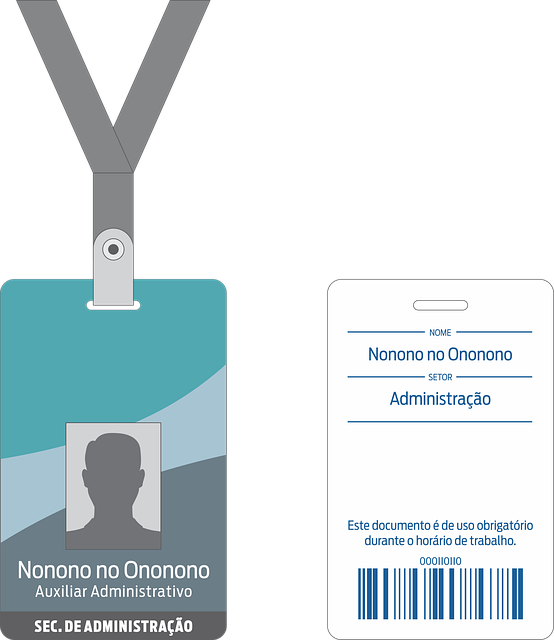In the fast-paced world of commercial transportation, every vehicle record holds valuable insights. With stringent road safety regulations in place, maintaining an impeccable vehicle history report is no longer a best practice but a necessity. This article explores the significance of clear vehicle logs and timely registrations in avoiding penalties, while highlighting how digital platforms are revolutionizing license plate lookups and inspection record access. Discover why proactive compliance monitoring is crucial for managing fleets of any size, from heavy-duty trucks to trailers, ensuring smooth operations free from regulatory headaches.
- The Power of Vehicle History Reports
- Road Safety Regulations: A Focus on Compliance
- Digital Transformation in License Plate Lookups
- Efficient Truck Fleet Registration Practices
- Compliance Monitoring for Seamless Operations
The Power of Vehicle History Reports

Vehicle history reports are like a book of life for each commercial vehicle, chronicling its journey from manufacturing to current ownership. These comprehensive records provide invaluable insights into a truck’s or trailer’s past, including maintenance history, accident records, and compliance with safety standards. By reviewing these reports, fleet managers can make informed decisions about vehicle allocation, identify potential issues before they escalate, and ensure that their fleet operates within legal parameters.
Accurate vehicle history data is also crucial for maintaining a strong relationship with insurance providers. In the event of an incident, detailed records demonstrate proactive management and responsible practices, potentially leading to more favorable insurance terms. Moreover, in cases of dispute or when selling vehicles, these reports serve as irrefutable evidence, protecting both the operator and the buyer.
Road Safety Regulations: A Focus on Compliance

Road safety regulations are becoming increasingly stringent, placing a greater emphasis on compliance for commercial vehicle operators. These stricter rules are driven by a desire to reduce accidents and improve road conditions, which directly impacts fleet managers’ responsibilities. One of the key aspects of maintaining compliance is meticulous record-keeping; every journey, maintenance task, and inspection must be accurately documented in logbooks. This includes detailed information about vehicle condition, driver behavior, and any safety-related issues.
By adhering to these regulations, fleet managers not only avoid hefty fines but also contribute to a safer driving environment. Digitalization has played a significant role in enhancing this process, as platforms that facilitate license plate lookups and provide real-time access to inspection records enable faster decision-making. This proactive approach ensures that any potential issues are identified and addressed promptly, ultimately leading to more efficient fleet management and reduced operational risks.
Digital Transformation in License Plate Lookups

The digital age has brought about a significant transformation in how fleet managers conduct license plate lookups, revolutionizing an earlier cumbersome process. Traditional methods relied heavily on manual record-keeping and physical documents, making it time-consuming and prone to errors. However, with digitized platforms now available, fleet managers can access real-time data and inspection records with just a few clicks.
This new era of digital transformation enables faster and more efficient license plate searches, providing fleet operators with unparalleled visibility into their vehicles’ history. As a result, they can make informed decisions, ensure timely maintenance, and stay ahead of regulatory changes, all while minimizing the risk of penalties and maximizing operational efficiency.
Efficient Truck Fleet Registration Practices

Efficient truck fleet registration involves streamlining the entire process from initial acquisition to ongoing maintenance. It begins with meticulous record-keeping, where each vehicle’s details—from manufacturer and model to ownership history and service records—are diligently documented. This foundational step ensures that every truck’s lifecycle is tracked, making it easier to identify potential issues or areas requiring regulatory compliance.
Digitalization plays a pivotal role in enhancing this practice. Modern fleet management systems offer robust platforms where license plate lookups can be conducted swiftly, providing instant access to inspection records and vehicle history reports. This real-time data empowers managers to make informed decisions, conduct proactive maintenance, and stay ahead of potential penalties, ultimately contributing to safer and more efficient operations.
Compliance Monitoring for Seamless Operations

In today’s highly regulated environment, compliance monitoring is no longer an option but a necessity for fleet managers. It involves rigorous tracking and record-keeping to ensure every vehicle in the fleet adheres to local road safety standards and legal requirements. By implementing robust compliance monitoring systems, fleet managers can gain real-time insights into vehicle inspections, maintenance schedules, and driver behavior, allowing for proactive measures to address potential issues before they escalate.
This process streamlines operations by automating tasks such as license plate lookups and inspection record retrieval, reducing manual effort and human error. Accurate and up-to-date compliance records not only help avoid hefty penalties but also foster a culture of safety within the organization. Moreover, it enables efficient decision-making, supports regulatory audits, and ultimately contributes to the overall success and sustainability of trucking and fleet management businesses.
Maintaining a comprehensive and accurate vehicle history report is no longer a choice but a necessity. With the evolving landscape of road safety regulations, fleet managers must embrace digital tools like digitized license plate lookups and efficient registration practices to stay ahead of compliance. By prioritizing robust compliance monitoring, operators can ensure their fleets run smoothly, minimizing penalties and maximizing efficiency in today’s competitive market.



